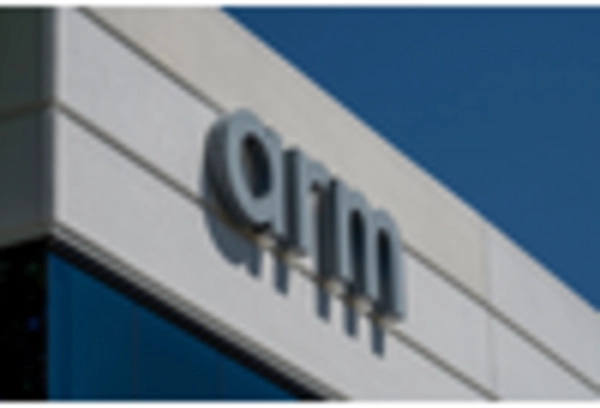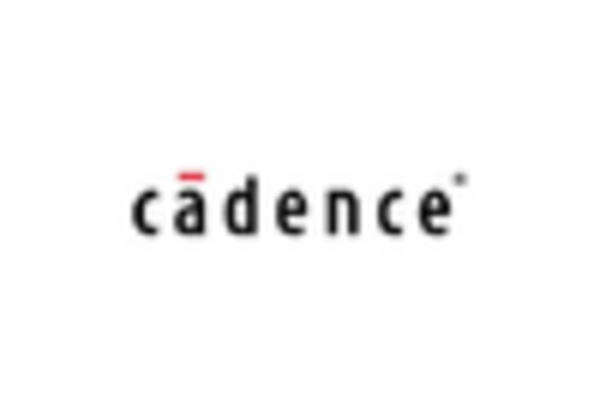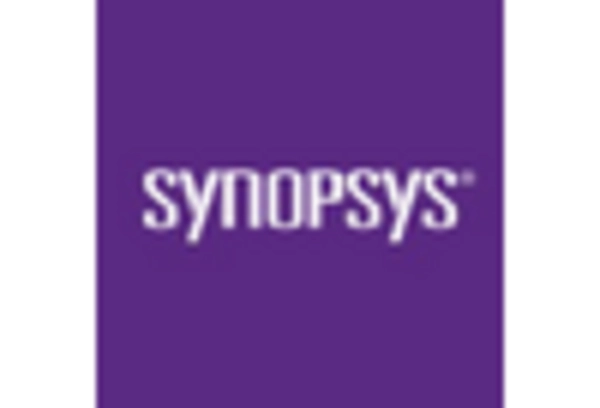Growing Demand for IoT Devices
The proliferation of Internet of Things (IoT) devices is significantly impacting the semiconductor ip market in Germany. As industries increasingly adopt IoT solutions, the demand for specialized semiconductor components is on the rise. Reports indicate that the IoT market in Germany is projected to grow at a CAGR of 15% over the next five years, driving the need for advanced semiconductor ip solutions. This trend is prompting semiconductor companies to develop innovative ip cores tailored for IoT applications, such as low-power consumption and enhanced connectivity features. Consequently, the semiconductor ip market is likely to expand as companies strive to meet the evolving needs of the IoT ecosystem.
Government Initiatives and Funding
Government initiatives play a crucial role in shaping the semiconductor ip market in Germany. The German government has recognized the strategic importance of semiconductor technology and has launched various funding programs aimed at bolstering domestic production and innovation. For instance, the recent €1 billion investment in semiconductor research and development is expected to enhance the competitiveness of local firms. Additionally, initiatives promoting collaboration between startups and established companies are fostering innovation in the semiconductor ip market. These efforts not only support the growth of the industry but also aim to secure Germany's position as a leader in semiconductor technology within Europe.
Rising Importance of Data Security
In an increasingly digital world, data security has become a paramount concern for businesses in Germany, particularly in the semiconductor ip market. As companies integrate more semiconductor solutions into their operations, the need for secure and reliable ip has intensified. This is particularly relevant in sectors such as finance and healthcare, where data breaches can have severe consequences. The semiconductor ip market is responding to this demand by developing ip cores that incorporate advanced security features, such as encryption and secure boot mechanisms. This focus on data security is expected to drive growth in the semiconductor ip market, as companies prioritize the protection of sensitive information.
Increased Focus on Automotive Electronics
The automotive sector in Germany is undergoing a transformation, with a heightened focus on electronics and smart technologies. This shift is significantly influencing the semiconductor ip market, as automotive manufacturers seek advanced semiconductor solutions for electric vehicles (EVs) and autonomous driving systems. The market for automotive semiconductors is expected to reach €30 billion by 2026, reflecting a robust demand for specialized ip. As a result, semiconductor companies are investing in developing ip that meets the stringent requirements of automotive applications, such as safety, reliability, and performance. This trend is likely to drive innovation and growth within the semiconductor ip market.
Technological Advancements in Semiconductor Design
The semiconductor ip market in Germany is experiencing a surge due to rapid technological advancements in semiconductor design. Innovations in design methodologies, such as system-on-chip (SoC) architectures, are enabling companies to create more efficient and powerful chips. This trend is reflected in the increasing investment in research and development, with the German semiconductor industry allocating approximately €3 billion annually to enhance design capabilities. Furthermore, the integration of artificial intelligence and machine learning into design processes is streamlining workflows and reducing time-to-market. As a result, companies are better positioned to meet the growing demand for customized semiconductor solutions, thereby driving growth in the semiconductor ip market.













